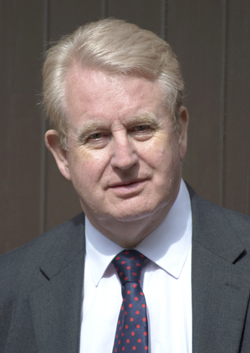John
Michael
PorterPersonal Injury
medical reports
Michael
PorterPersonal Injury
medical reports
For all enquiries please call
07932 337812
07932 337812
Mr Porter will retire completely from medico-legal work in April 2022. Please see Mr Porter's retirement section for full details.
Attending for a Medico-Legal Consultation
Clients should understand the role of the Expert Witness, in the overall management of their legal action. The duties of experts are laid down in the Civil Procedure Rules, which state that 'It is the duty of experts to help the Court in matters within their expertise. This duty overrides any obligation to the person from whom experts have received instructions, or by whom they are paid’. The expert's report is a part of the evidence, which enables the Court to reach the overriding objective of dealing with cases justly.
The report which Mr Porter provides is addressed to the Court and is written to advise the Court. Clients must understand that the report is written for the Court and not on behalf of the client, or the instructing solicitor. If a client should wish for a better understanding of the duties and obligations of experts, he/she should consult the Civil Procedure Rules, Parts 1 and 35, the Part 35 Practice Direction, the Civil Justice Council guidance, the CJC Expert's Protocol and the Pre-action Protocol for Personal Injury Claims. These documents are available to all on the internet.
Clients should do their best to attend punctually for the consultation. If clients are late, the clinic will be disrupted. Other people will be kept waiting, or the client who is late will have to wait until the end of the clinic to be seen. If clients are held up in traffic, a telephone call is appreciated, so that other arrangements can be made to see them, on the same day. If a client has to travel a long distance to see Mr Porter, the journey should be researched and plenty of time allowed.
Cancellation of a consultation, less than 24 working hours before the date and time of the consultation, or failure to attend will incur a cancellation fee. The cancellation/non-attendance fee is half the medical report fee plus VAT.
At the beginning of the consultation, clients will be asked for evidence of identity. A driving licence, passport, bus pass, personal identity card, or work identity card are ideal. Polish or Lithuanian clients should bring their national identity cards. Bank Cards are not accepted as proof of identity, for confidential financial details are inappropriate in a medical report.
Clients must be prepared to explain how they were injured, the treatment they received and for how long they were off work. They should be ready to give a clear account of the problems they experienced, after of the injury. If problems were experienced in the weeks or months after an accident, Mr Porter will ask for how long these problems lasted. Clients will be asked about present problems, they believe were caused by the accident. Medical records do not always provide answers to these questions. It is helpful to make some notes before attending. Clients are encouraged to bring a family member or a friend with them, who can sit in on the consultation, if the client wishes. The presence of a third party is recorded in the medical report.
Clients are encouraged to bring photographs of their injuries. A photograph should be dated and should clearly demonstrate what has been photographed. The photograph must identify the person being photographed and should be evenly lighted, without extremes of light and shadow. If possible, the photograph should be presented in A4 format. If photographs have been taken of the same injury at different times (for example to show progression of wound healing), the position of the camera and the lighting should be identical for each image.
Images taken on a mobile telephone can be e-mailed to Benara Rahman, so that they can be viewed on a large computer screen. If at all possible, photographs illustrating the long term effects of an injury and scarring, should be taken by a professional medical photographer. Solicitors can arrange for photographs to be taken at the medical illustration department at a hospital near to the client's home. High quality medical photography is valuable evidence for the Court; poor quality photography is often worthless as medical evidence.
In the West Midlands, Michael Porter regularly sees clients who are not primary English speakers. Clients who have adequate conversational English, may find that they struggle with the more complex language requirements of a medico-legal consultation. If the client either has minimal English or no English, the solicitor and the client should make sure, that the client attends with a family member or friend who is fluent in English, or with a professional interpreter.
The Apollo Surgery is on the Kings Road, Great Barr, close to the roundabout between Kings Road and the Queslett Road.
